AI in Education: How to Implement Artificial Intelligence in Online Learning
Online learning has already become a familiar part of the educational environment. Its popularity is growing year after year. And AI dramatically contributes to its success. Generative AI is rapidly gaining ground in online education, as the ability to create virtually any content and the free use of natural language in automated systems are truly revolutionary opportunities for eLearning.
According to Grand View Research, the global AI in education market size was valued at $1.82 billion in 2021. It is expected to expand at a CAGR of 36.0% from 2022 to 2030. These numbers prove the necessity of paying attention to AI in eLearning.
What is Artificial Intelligence (AI) Today?
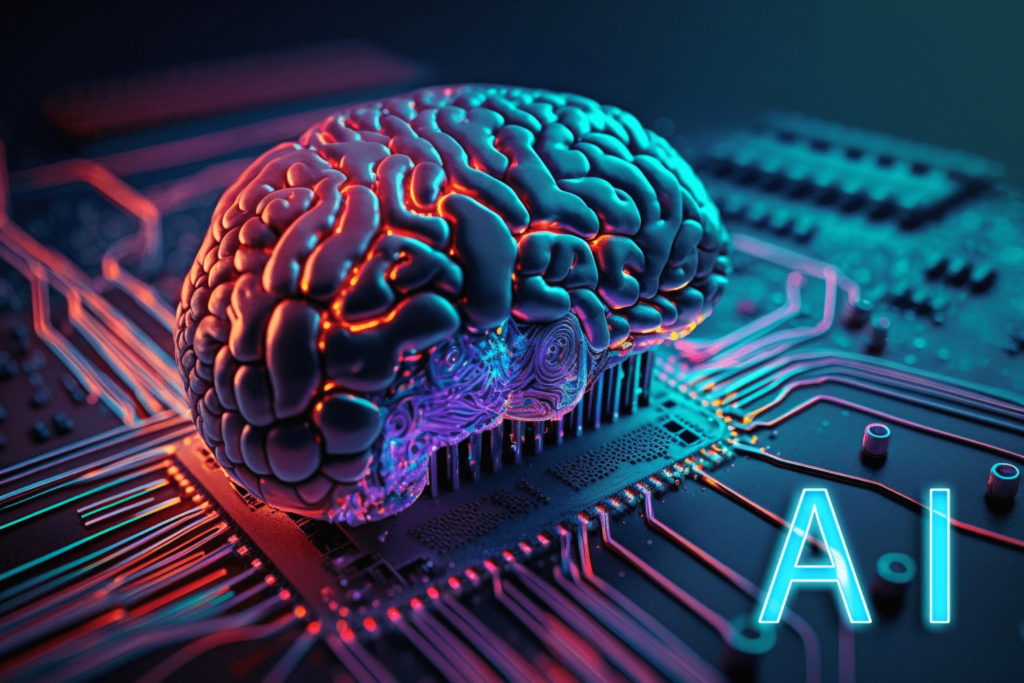
Generative networks or Gen AI are systems that can create new content, from text to images to sounds. Compared to conventional AI, which works according to clearly defined rules, Gen AI learns on the fly, adapting and creating something of its own. It’s similar to how an artist doesn’t just copy nature but interprets and even reinterprets it.
The much-touted ChatGPT neural network has been trained on millions of data from the Internet and knows literally everything the Internet knew before 2022. And it continues to be trained on new data.
The first forays into AI were made back in the mid-20th century. Still, the hype around neural networks has only started now, with ChatGPT, Midjourney, and other neural networks hitting the scene. Their popularity is due to the fact that ordinary people finally have access to AI. AI is set to boom into a $90 billion industry by 2025 as ChatGPT generates an investment frenzy.

Here, we can recall the Gartner hype cycle – a graph with a step-by-step process that any innovative technology goes through: from the hype stage to productive use. AI is now moving from the hype stage (when all people have access to the technology) to the stage when only a part of these people are slowly learning to implement neural networks in solving their daily tasks. This includes online education.
Examples of AI in Online Learning: How Has AI Already Impacted Education?
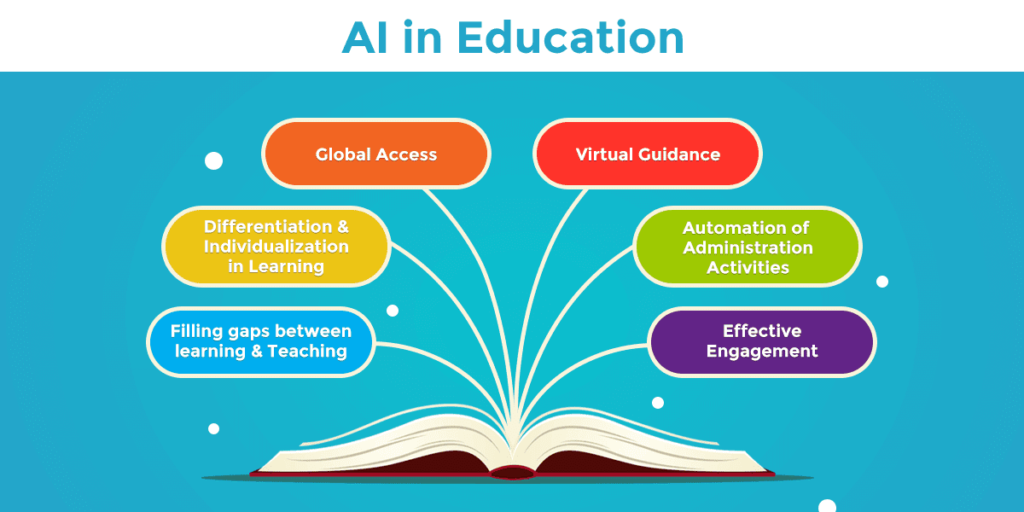
Online education, most of which belongs to private companies, began to introduce AI earlier than public institutions. Innovative solutions based on AI improve learning and optimize different processes. Here are some striking case studies:
- Coursera, a major provider of open online courses in the US, uses AI to offer personalized course recommendations to learners based on an analysis of their preferences, previous courses, and successes.
- Chinese education company Squirrel AI uses machine learning algorithms to create unique learning plans for each learner, considering their individual needs and abilities.
- US company Knewton has developed a platform that uses adaptive machine learning algorithms to personalize learning content and teaching methods.
- UK-based Century Tech offers an AI-based platform for personalized learning, progress analysis, and the generation of personalized recommendations.
- US-based Cognii has developed an AI platform to check essays and provide feedback to students, simplifying the process of checking large volumes of work.
Integrating generative AI tools into LMS (learning management system) is one of the key trends in developing the entire eLearning domain. For example, the most popular language learning application, Duolingo, has already implemented a large GPT-4 language model in some of its products. AI helps users parse errors in detail and conduct simulations of real dialogs with native speakers.
The corporate eLearning segment will undoubtedly follow this path in the coming years. As the World Economic Forum survey shows, today, almost 60% of companies consider the inability to bridge the skills gaps of their workforce to be a significant barrier to business transformation. From the perspective of 2024-2027, 81% of respondents consider investment in staff training to be a key strategy for maintaining competitiveness. In 3-4 years, virtually every large business will likely rely on some form of educational AI platform – either vendor-provided or custom-made.
Benefits of Generative AI Compared to Teachers
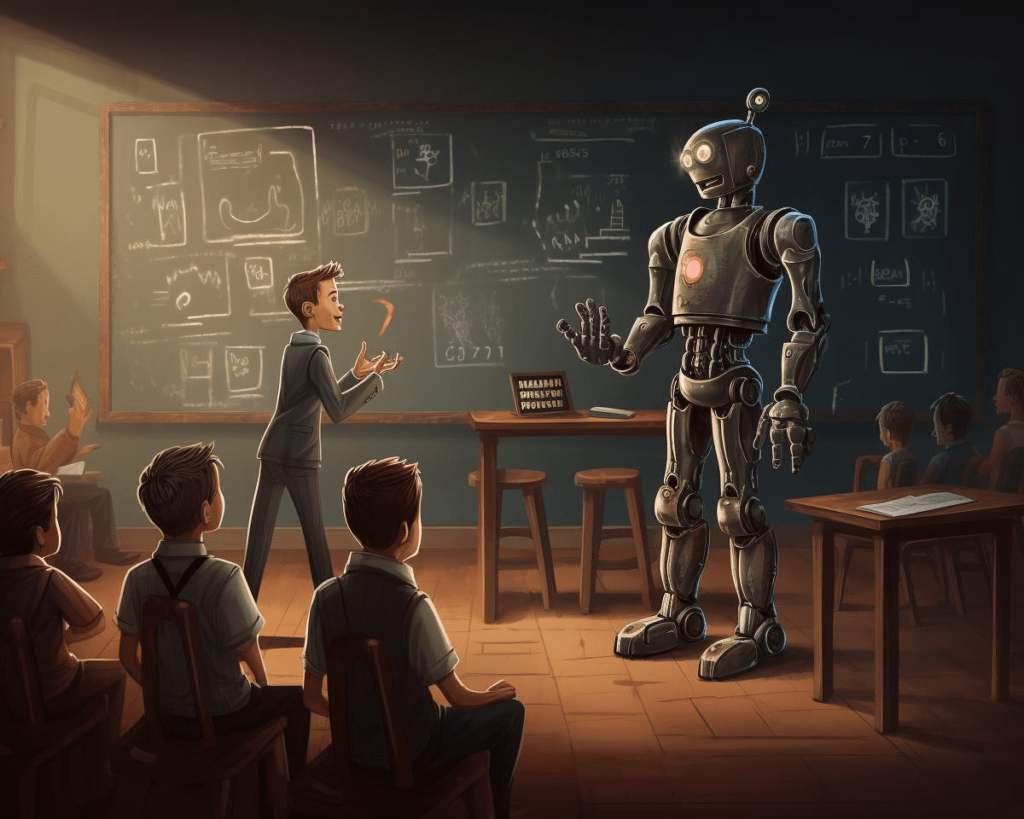
We highlight 5 main benefits of generative AI compared to teachers.
Personalization
No two students in the world are the same. We are all different. And no teacher, even the best teacher, can give every student the attention they need. But Gen AI in eLearning can. It will analyze each student’s learning style and customize the materials and assignments to match it. Imagine a world where students who are behind and students who are ahead get different materials and assignments. Such a world is close at hand.
Individual Learning Scenarios
Imagine you’re learning Italian. Instead of standardized exercises, AI can create a real-life situation where you must apply your knowledge. If you’re learning the language for a job in pharma, AI will customize the learning to the field you need. You are no longer dependent on the general program and requests from other learners.
Easy Updating Learning Materials
How long does it take for people to create a new textbook? A lot. Gen AI can automatically integrate the latest research and data into training programs. Everything a human sees will always be up to date.
Language Accessibility
With Gen AI, you can create high-quality learning materials in any language. While some countries used to have more educational expertise than others, this gap will now be closing: AI can instantly translate any knowledge into any language.
Continuity
The studying is strictly scheduled, and you can ask your teacher a question only when he or she is on the phone. AI in education is always on. It will answer any question at any time of the day, explain it step by step, and give recommendations for further study.
Can AI Assist in Creating an Educational Curriculum?

What the simplified process of creating an online course looked like before the advent of AI:
- A methodologist designed the curriculum so that students would gain enough knowledge to master a trade or point skill.
- The producer sought out relevant speakers for the course. Speakers recorded training videos with the production team.
- Copywriters or author-editors wrote the course text based on the speaker’s content. Designers rendered pictures, graphics, and more.
- When the course was released, learners were assigned a learner support team. These people checked homework assignments, gave feedback, and supported learners all along the learning path.
This long and expensive process affected both the course’s final cost and sometimes the learning experience’s quality.
What of these steps can be completely taken over by AI? All of them. A GPT can replace a methodologist: a neural network will write the program and the content itself for any course in seconds. A neural network like HeyGen can make a video with a virtual speaker. You can create a non-existent speaker or upload video examples with a real person and recreate his voice and movements. Midjourney can draw the pictures. A chatbot based on GPT can check homework, set grades, and determine whether the student is OK with the course and general condition. It will even make recommendations on improving his or her educational experience.
So, with AI in education, the speed and cost of creating an online course or an entire curriculum is reduced tenfold, and the quality of learning only increases. AI in education can take over other processes outside of the course. We mean creating a marketing plan and creatives to sell the course, calculating the market for online education, and analyzing learning outcomes.
Harvard and Penn Business Schools Research
Harvard and Penn Business Schools have released a study of AI in business processes based on the daily work of BCG consultants (one of the world’s top three consulting firms). Quite simply, the researchers compared employee productivity with and without GPT. On all types of productivity gains measures, employees with GPT outperformed the others.
But the employees (the best consultants in the world) already had more knowledge and experience. The study only showed that such an employee is more productive with AI, not that anyone with no education can become a stellar BCG consultant. Yes, neural networks are improving the way we work, but they still can’t fully replace a professional.
In online education, a course created entirely with AI will still be inferior to one with AI and strong speakers.
How to Implement Generative AI in eLearning?
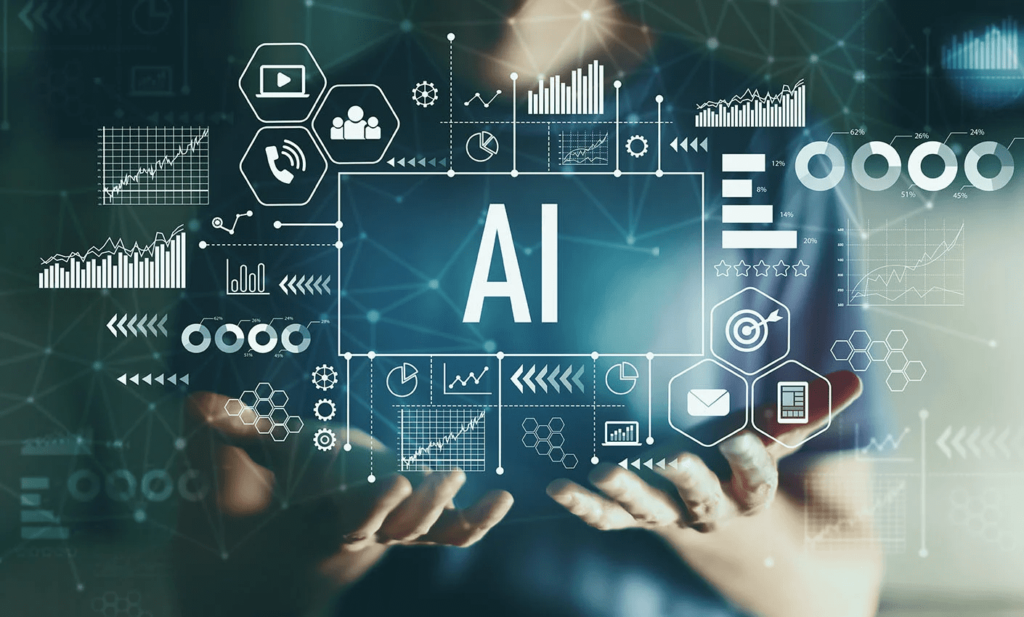
It’s easy to see that the large-scale application of generative AI tools is currently only in complex and sophisticated eLearning platforms. This is partly because universal packaged solutions or cloud-based AI services are still virtually non-existent or are making their first steps.
Using publicly available tools like ChatGPT for online education has very significant limitations in terms of available functionality and data privacy.
Thus, the optimal (and, in fact, the only) solution for implementing generative AI tools in online learning is to develop an LMS platform from scratch. Such a development provides all the necessary grounds for this:
- Ability to utilize any technology and integrations
- Complete freedom to scale and customize the platform
- Ability to properly implement a language model and train algorithms with data or training materials
- Ability to ensure data privacy and cybersecurity
There are certainly quite a few packaged online course creation platforms and cloud-based LMS systems on the market. Perhaps some already offer some basic functionality based on artificial intelligence.
But, out-of-the-box solutions cannot cover a single organization’s educational needs, especially regarding large-scale online courses or training hundreds of specialists and employees within a company. The need to implement tools like generative AI makes customized development of eLearning solutions even more important.
OS-System – your reliable IT partner from Ukraine
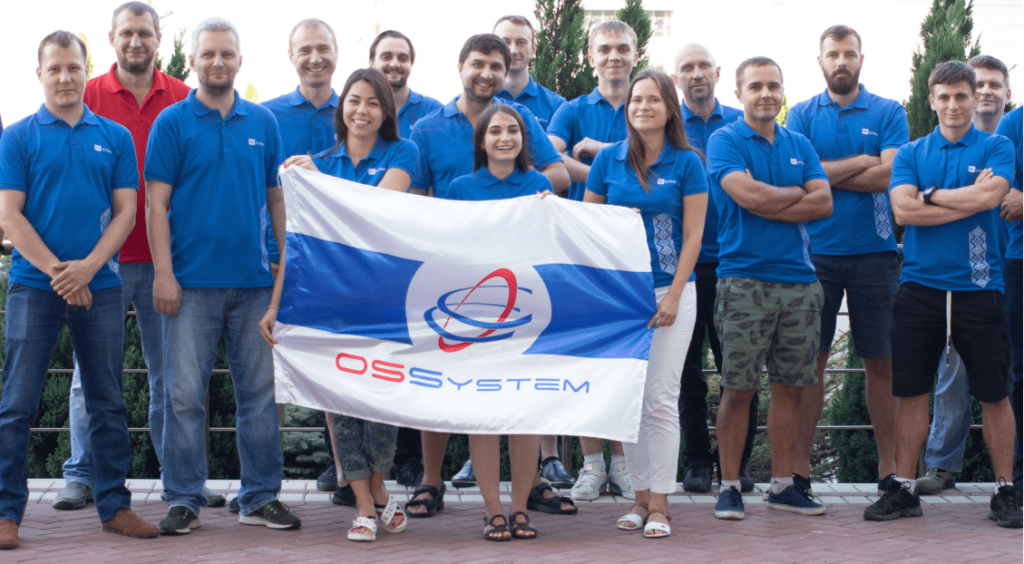
Shortly, artificial intelligence (AI) is poised to significantly aid educators worldwide.
At OS-System, we stand as a distinguished and dependable ally in crafting ML solutions tailored for the educational realm. With our specialized knowledge, proven track record, collaborative ethos, ethical framework, bespoke offerings, and penchant for innovation, we emerge as a steadfast partner for AI initiatives within eLearning.
Our unwavering dedication to grasping the distinct requirements of educational establishments, coupled with our ability to deliver ethical and efficacious ML solutions, establishes us as a trusted force in driving educational progress through technological advancements.
Feel free to contact us to discuss the development of your educational project.
![]()
Subscribe to us










